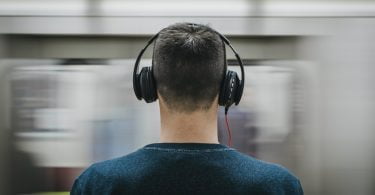For festival fans, this is the part of the year where the anticipation begins—the list of performers come out, the tickets go on sale, and the plans are made for what will be a brilliant week
For festival fans, this is the part of the year where the anticipation begins—the list of performers come out, the tickets go on sale, and the plans are made for what will be a brilliant weekend. Yet, with the rise of social media, the overall festival experience has been taken a step further.
Recently, the organisers of the Reading and Leeds festivals gave fans the opportunity to name a stage to be curated by Radio 1 DJ Daniel P. Carter.
Most of the votes that came in were via Facebook and Twitter, and in an age where festivals are posting performer and ticket info on these platforms, and when they will expected to become trending topics on Twitter by the time the weekend is out, it has become clear the festival experience has changed with the rise of social media, and there’s no turning back.
Communicating the experience
“The festival experience has changed enormously over the last couple of years and social media has played a huge part in that,” says Lucy Ruthnum of This Festival Feeling (a sister publication of Kettle’s) which looks at the festival experience. “Just look at the way that most line-up announcements hit Facebook and Twitter before the festival website these days. If you want to know anything about your chosen festival, often these sites are the first port of call for fans rather than heading straight [to] the website.”
Ruthnum notes that videos are becoming more common to accompany performer announcements. Bonaroo, a festival held in the US state of Tennessee every year, did an announcement through YouTube.
Yet, Ruthnum says, the Reading and Leeds festival stage naming was unique, saying the festival experience can be dictated to the organisers all with the click of a mouse.
Getting it right
“It’s an amazing opportunity for music lovers to make suggestions and give feedback on events directly to the people who implement changes,” Ruthnum said. “It gives us festival-goers the reassurance that our festivals are not being taken over by faceless corporations and promoters more intent on making money than creating an incredible experience, and it gives us a chance to be involved.”
However, with anticipation surrounding the events, Ruthnum says, promoters’ strategies have got to be just right.
“Social media is a fickle thing,” Ruthnum said. “It can really work in your favour if you use it right, but just using it to publicise and not letting people communicate back to you leaves things very one-sided. The whole point of social media is that is opens up a dialogue with the customer. Festival-goers’ expectations are increasing with this new way of communicating their wants and needs – the fact that we can now directly share what we love and hate means that we expect organisers to listen to us – after all, we are the ones paying to be there!”
Festivals have become a unique experience—a community experience, and social media has expanded that, leaving more memories to be had.
“It creates a community of followers who love each festival and have shared amazing memories,” Ruthnum said. “Social media is bringing the whole world closer together and now it is possible to go to a festival in Croatia, meet some Australian festival-goers and stay in touch when you return to the UK – this community may be spread across the world, but with Facebook and Twitter, you could be just around the corner.”
What do you think? How has social media revolutionised your festival experience? Have your say in the comments section below.
Image: Secretlondon / Wikimedia Commons








